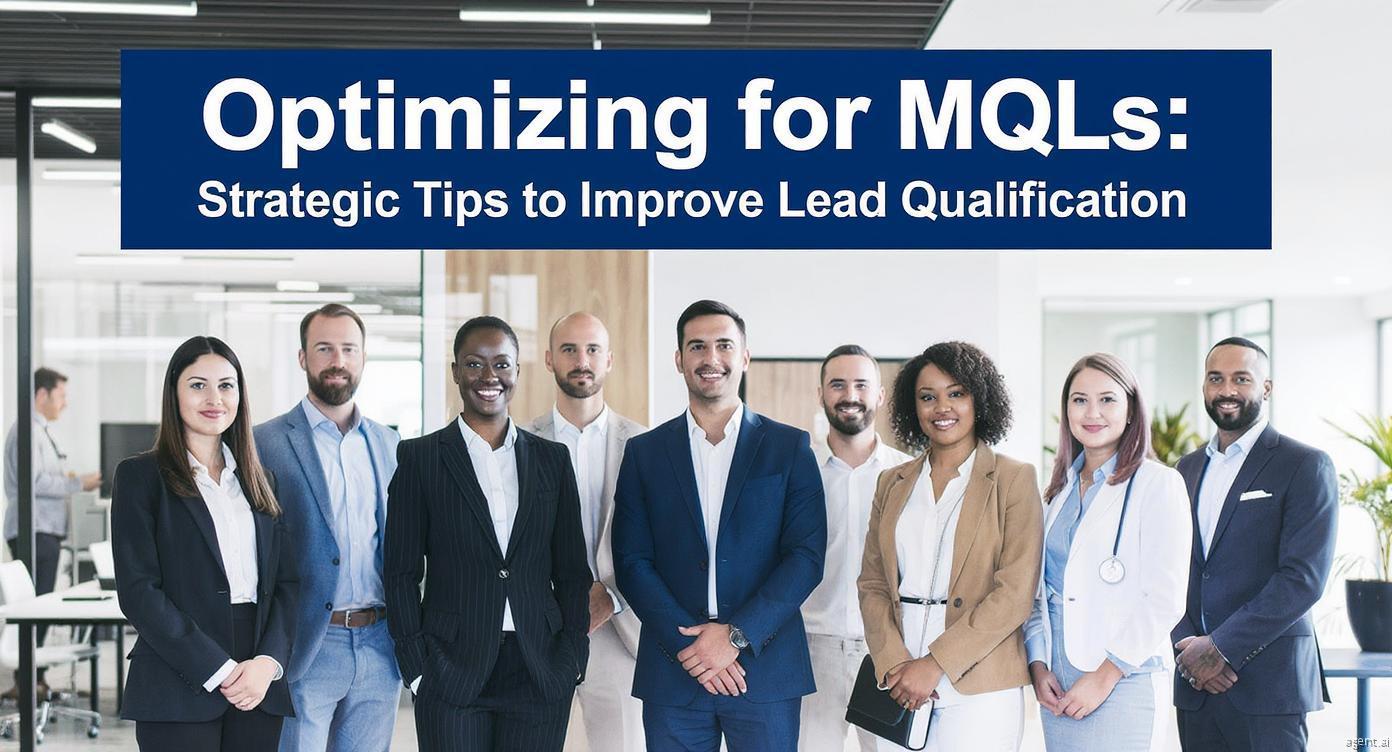Strategic Approaches to Enhance MQL Conversion for B2B Success

In B2B marketing, the ability to identify, nurture, and convert high-quality leads is vital to sustained growth. The focus on Marketing Qualified Leads (MQLs) has become a cornerstone strategy for improving conversion rates and maximizing marketing ROI. Optimizing for MQLs requires a blend of data-driven insights, aligned team efforts, and personalized strategies to move potential buyers efficiently through the sales funnel.
The Importance of MQLs in Lead Generation
An MQL is not just any lead—it’s a lead that has shown interest in your products or services through specific actions like downloading resources, attending webinars, or engaging with email campaigns. By optimizing for MQLs, businesses can filter out less relevant prospects and focus their marketing resources on individuals who are most likely to convert. This improves not only lead quality but also the efficiency of the entire marketing and sales process.
The role of MQLs goes beyond simply qualifying leads. It helps create a more predictive sales pipeline by identifying patterns of buyer behavior. This ensures that the right content is delivered to the right people at the right time.
Establishing a Robust Lead Scoring Model
A strategic lead scoring system is essential when optimizing for MQLs. By assigning values to various lead behaviors, demographics, and engagement levels, businesses can identify which prospects are closer to making a purchase. For example, visiting a pricing page or downloading a product brochure might carry a higher score than simply reading a blog post.
Lead scoring also allows businesses to prioritize leads, ensuring that sales teams are engaging with the most promising prospects first. A robust scoring model combines firmographic data (company size, industry, location) with behavioral signals to create a complete picture of lead readiness.
Creating High-Value Content for Lead Nurturing
Content is a driving force behind attracting and nurturing MQLs. Businesses must create content that educates, informs, and addresses the pain points of their target audience. Whitepapers, industry reports, and expert guides can establish authority and trust, encouraging prospects to engage with your brand.
When optimizing for MQLs, the content strategy must align with different stages of the buyer’s journey. For example, blog posts and infographics work well for awareness, while webinars and product demos help convert leads into MQLs. Regularly updating content to stay relevant ensures continued engagement from potential buyers.
To know more visit us @ https://acceligize.com/
Marketing Automation to Streamline MQL Processes
Marketing automation platforms play a pivotal role in improving lead qualification. Tools like HubSpot, Marketo, and Pardot help track user behavior, automate lead nurturing campaigns, and provide actionable insights. By automating repetitive tasks, marketing teams can focus on building personalized experiences for high-value leads.
Automation also enables real-time tracking of lead interactions across channels. This data helps determine when a lead meets MQL criteria and is ready for a handoff to the sales team.
Data-Driven Personalization
Personalization is no longer optional in B2B marketing. When optimizing for MQLs, personalized campaigns improve engagement and conversion rates. Data from website visits, email interactions, and social media activity can be used to craft targeted messaging that resonates with specific buyer personas.
For instance, if a lead frequently engages with content about a particular product feature, personalized emails or retargeting ads can highlight the benefits of that feature. This data-driven approach increases the chances of moving the lead to the next stage in the funnel.
Sales and Marketing Alignment for MQL Success
A lack of alignment between marketing and sales teams is one of the main reasons businesses struggle to convert leads. Both teams must work together to define what constitutes an MQL. Regular meetings and feedback loops ensure that sales teams provide insights on lead quality, while marketing adjusts its strategies accordingly.
Shared KPIs and metrics, such as lead-to-opportunity conversion rates, can help measure the success of MQL-focused strategies. When both teams collaborate, the entire buyer journey becomes smoother and more effective.
Using Buyer Intent Data to Enhance MQL Quality
Buyer intent data is a powerful tool for improving MQL qualification. It reveals which companies are actively researching solutions similar to yours. By analyzing intent signals, marketers can proactively target these leads with relevant messaging and offers.
Incorporating intent data into lead scoring models ensures that only highly relevant and engaged leads are passed to the sales team. This results in shorter sales cycles and higher conversion rates.
Multi-Touch Lead Nurturing
Optimizing for MQLs requires engaging leads across multiple channels. Prospects might interact with your brand on email, social media, or through website visits. Multi-touch campaigns ensure that your messaging is consistent and present across all these touchpoints.
Using retargeting ads, personalized emails, and interactive content like webinars can help reinforce your brand’s value proposition and keep prospects moving through the funnel.
Continuous Optimization and Testing
The process of optimizing for MQLs is not static. Regular testing and analysis are essential for refining lead qualification strategies. A/B testing of emails, landing pages, and CTAs can reveal which elements resonate most with your audience.
Continuous analysis of lead data ensures that your scoring model, content strategy, and automation workflows remain relevant and effective. Businesses that consistently optimize their MQL strategies gain a competitive advantage in lead conversion.
Read More @ https://acceligize.com/featured-blogs/optimizing-for-mqls-strategic-tips-to-improve-lead-qualification/
- Art
- Causes
- Crafts
- Dance
- Drinks
- Film
- Fitness
- Food
- الألعاب
- Gardening
- Health
- الرئيسية
- Literature
- Music
- Networking
- أخرى
- Party
- Religion
- Shopping
- Sports
- Theater
- Wellness
- IT, Cloud, Software and Technology


